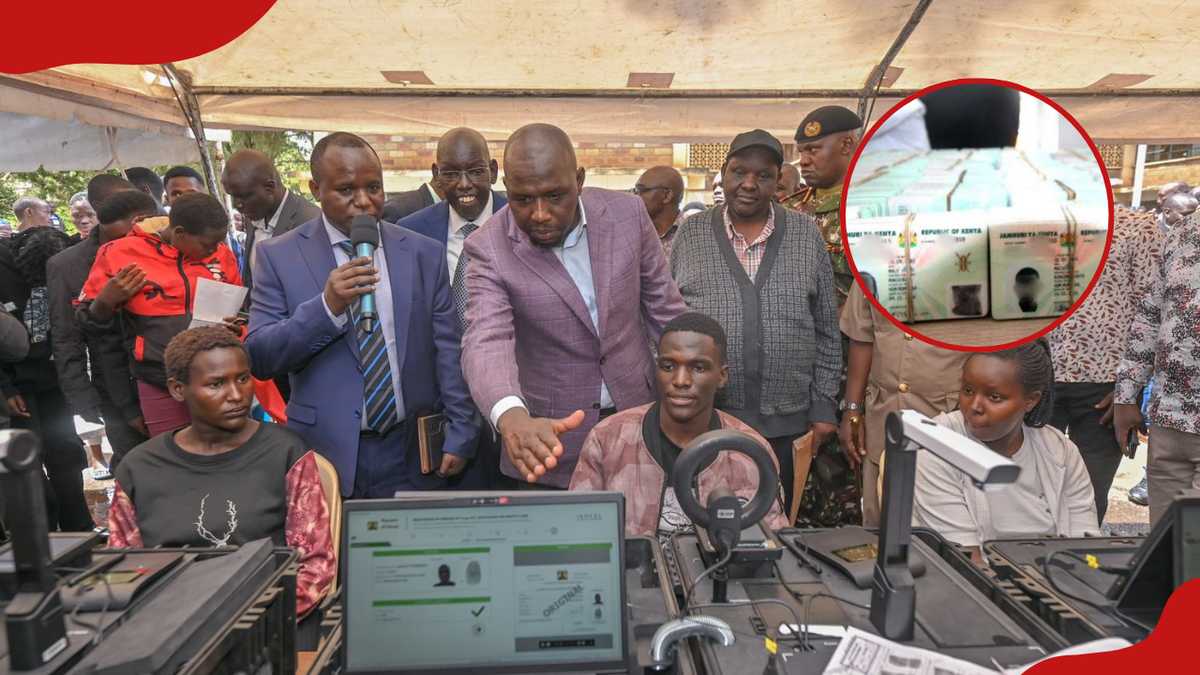
Introduction to the New ID Technology
The introduction of a new national identification (ID) production technology marks a significant milestone in Kenya's efforts to streamline civil registration and enhance public service delivery. This innovation, known as the Mobile Live Capture Unit, is set to revolutionize how Kenyans obtain their national IDs. The Cabinet Secretary (CS) for Interior and National Administration, Kipchumba Murkomen, has been at the forefront of promoting this initiative, emphasizing its importance in ensuring that all citizens can access essential services and exercise their democratic rights.
Key Features of the Mobile Live Capture Unit
The Mobile Live Capture Unit is a portable, battery-operated device designed to capture data from ID applicants. Once collected, this information is electronically submitted for processing. This system not only enhances efficiency but also ensures that personal data is managed securely. The technology allows for the rapid issuance of national ID cards, with the process expected to take between three to seven days.
Murkomen highlighted that the service is free of charge, provided that individuals are Kenyan citizens who have received full recognition from the local chief. This initiative aims to make the process of obtaining an ID more accessible, particularly for those in remote and underserved areas.
Enhancing Public Service Delivery
The introduction of this technology aligns with the government's broader goals of using innovation and technology to improve public service delivery. By reducing backlogs and long-standing documentation delays, the Mobile Live Capture Unit is anticipated to transform national registration at the grassroots level. This is especially crucial in marginalized regions where access to services has historically been limited.
Murkomen emphasized the importance of the ID card in various aspects of life, including voting in elections, accessing employment opportunities, and utilizing social security benefits and financial services. He encouraged young people to take advantage of this technological advancement to exercise their democratic rights effectively.
Addressing Electoral Reforms
In preparation for the general election in 2027, ODM leader Raila Odinga proposed comprehensive electoral reforms. These include staggering elections to reduce costs, implementing artificial intelligence in voting procedures, and using ID cards as voter credentials. Odinga also called for an end to electoral manipulation, questioning why Kenyan elections remain among the most costly in the world.
President Ruto's Directive on ID Fees
President William Ruto recently issued a directive to scrap all fees associated with the issuance of national ID cards. This decision followed widespread public outcry over the previous policy that required Kenyans to pay at least KSh 300 for new ID cards and KSh 1000 for replacements. At a public rally in Kibra on March 13, the president announced that the documents would now be available at no cost, making them more accessible to all citizens.
This move is seen as a step towards building trust between the public and state institutions, ensuring that every citizen can participate in the democratic process without financial barriers. The government's commitment to providing free ID cards underscores its dedication to inclusivity and equitable access to essential services.
Conclusion
The new ID production technology represents a significant leap forward in Kenya's approach to civil registration and public service delivery. By leveraging innovation and technology, the government is not only addressing historical challenges but also paving the way for a more inclusive and efficient system. As Kenyans prepare for future elections, the availability of free national ID cards will play a crucial role in ensuring that every citizen can exercise their right to vote and access essential services. This initiative reflects a broader commitment to transparency, accountability, and the empowerment of all Kenyan citizens.
Tidak ada komentar:
Posting Komentar